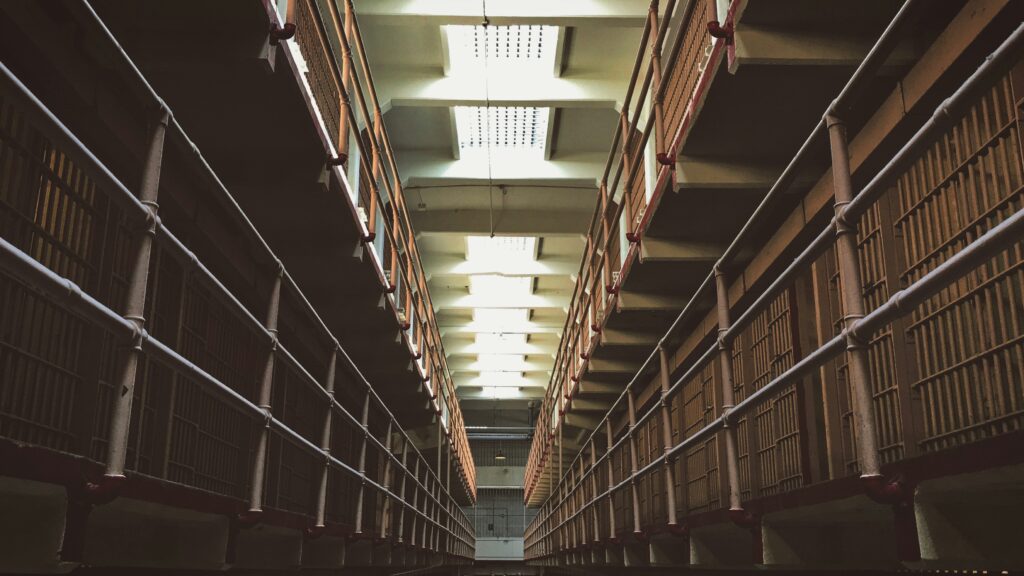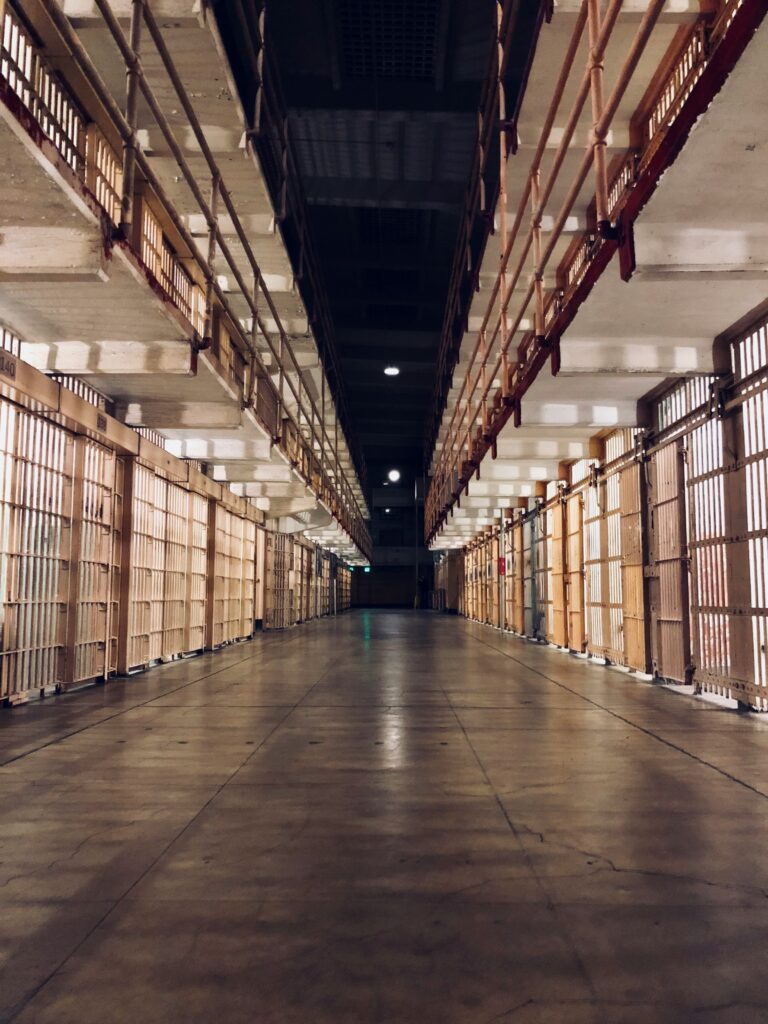Drug arrests and convictions linked to the War on Drugs carry a different kind of weight, as many of them involve non-violent “criminal” acts by law. The topic of non-violent drug crimes encompasses social justice issues such as racial profiling, inappropriate use of law enforcement resources, overcrowded prisons, and even education and employment options for Americans.
Disproportionate Black Arrest Rates in the War on Drugs
According to original data from the ACLU, marijuana arrests account for over half of all drug-related arrests in the United States. Of the 8.2 million marijuana arrests between 2001 and 2010, 88% were for simply having marijuana in possession. Nationwide, the arrest data revealed one consistent trend: significant racial bias. Despite roughly equal usage rates, Blacks are 3.73 times more likely than whites to be arrested for marijuana-related offenses.
Devin Alexander is an equity program participant and prospective cannabis delivery business entrepreneur in Quincy, Massachusetts. He said:
“African Americans and Caucasians use cannabis at very similar rates, but African Americans are [nearly] four times more likely to be arrested for cannabis use than their caucasian counterparts. What can come from these arrests can follow these individuals for a long period of time after the incident occurred. It can have negative effects on obtaining housing, student loans, and acquiring jobs. In cases where it results in prison time in some states, those individuals can be stripped of their right to vote while serving out their prison sentences.”
When Devin was a senior in high school, he was arrested for minor cannabis possession. Prior to the arrest, he was planning to go into the U.S. Air Force. But, the marijuana arrest derailed all of those plans. “I got pulled over in a car I wasn’t even driving,” he explained, “I was in the back seat and I was the only African American in the car. I was the only one that got arrested. Everyone else had weed on them, and they let them go.”
Sadly, Devin’s experience is not unusual. Cannabis arrests are extremely common. In fact, police officers in the United States still make more arrests for marijuana offenses than for any other drug, according to FBI data. Police officers made about 663,000 arrests for marijuana-related offenses in the 50 states and the District of Columbia in 2018, amounting to 40% of the 1.65 million total drug arrests in the U.S. that year (the most recent for which data is available). The second-largest category of drug arrests involved “other” drugs (29%), followed by heroin, cocaine, and their derivatives (25%) and synthetic or manufactured drugs (6%). These figures include arrests for possessing, selling, or manufacturing each kind of drug. They are based on information submitted to the FBI from thousands of state and local law enforcement agencies, which make the vast majority of arrests in the U.S. each year.
This also brings to light the conversation about the inappropriate use of both taxpayer dollars and law enforcement resources. Rani Santo is the Founder of R&S Publishing and is based in New Jersey. He stressed how essential it is to reallocate resources back into the community, as well as the need to continue to educate people about what “defunding the police” means. Soto explained:
“It doesn’t mean we don’t want police. I have police in my family, and I support law enforcement. However, when law enforcement is getting more money than after school programs, it’s disturbing. So, instead of putting money into after school programs, we are giving police more money, and then those kids that could be in after school programs are the ones that end up running the streets and getting arrested.”
Accepted Racial Profiling and the Targeting of Minorities within the Criminal Justice System
Race-based profiling is a concern and poses a problem in law enforcement agencies. It is an illegal practice and furthers the gap between race and law enforcement initiatives. Racial profiling, relative to Fourth Amendment rights, is when police have no legal basis for an enforcement action. And, while criminal profiling is different and relative to Fourteenth Amendment rights in which police have a legal basis for the enforcement action, the action is allegedly motivated more by bias than any reasonable suspicion of probable cause that may exist under the circumstances. The racial component of criminal profiling is objectionable, as even government studies acknowledge that minorities are identified as being disproportionately involved in drug trafficking.
According to the ACLU, defining racial profiling as relying on the basis of race, ethnicity, or national origin can be problematic. This definition, found in some state racial profiling laws, is unacceptable because it fails to include when police act on the basis of race, ethnicity, national origin, or religion in combination with an alleged violation of all law. So, for example, an officer who targeted Latino drivers who were speeding would not be racial profiling because the drivers were not stopped solely because of their race, but also because they were speeding. Addressing this problematic definition would aid in eliminating the vast majority of racial profiling now occurring.
The targeting of people of color is certainly real. This racial targeting also comes with a more aggressive style of policing. The data shows racially-targeted policing is highly inefficient and rarely uncovers contraband or solves cases. And those lessons are echoed in a large-scale analysis by the Stanford Computational Policy Lab, which analyzed nearly 100 million state and municipal police patrol stops, finding racial bias in both who police stopped and who they searched after they stopped.
The goal of law enforcement should be to establish and maintain the trust of the citizens it is designed to protect, as well as serving the needs of that same community; not profile them because of the color of their skin. However, as Inge Fryklund, board treasurer for Law Enforcement Action Partnership (LEAP), explained, there is a relationship between the war on drugs, police militarization, racism, and the violence often associated with arrests and enforcement: “As long as the drug war is hanging around, that gives a hook for police to go after people. All of these things need to be dealt with together.”
Marijuana “Drug” Crimes and Cannabis Arrests in The Drug War
More people are arrested for cannabis-specific drug offenses than any other substance. Four-in-ten U.S. drug arrests in 2018 were for possession, sale, or manufacture of marijuana. This was 15% more than any other illegal drug. A “drug”, I might add, that is legal in some form in the majority of the United States. Of those arrests for cannabis, 92% of them were for possession.
Marcus Harcus is an activist in Minneapolis, MN, who has been on the ground doing social justice and drug law reform work for years, and is especially busy with the current demonstrations and activation that is happening. Harcus is also a political candidate for Minnesota State Representative in House District 59A in North Minneapolis. Harcus mentioned that law enforcement uses the War on Drugs to justify these killings and arrests, especially with Black people.
“Cannabis prohibition and, basically, the overall drug war has been a way for police or other law enforcement to basically over-exercise their profile or their ability to be able to make these arrests and pull people over. You know with the brutal measures police use, whether it’s arresting people, scaring people or hurting people, and sometimes even killing people. Things like that, cannabis and other drugs, are a point of access for them. If all drugs were legal and being regulated, it would no longer be an access point for them.” -Marcus Harcus
On average, 1,000 Americans die every week from drug overdoses. Despite the growing drug epidemic, the Trump administration continues to ignore clear evidence addiction is a public health issue, not a criminal justice issue. These actions will imprison countless Americans, disproportionately hurt communities of color, and waste taxpayer dollars.
Rani Soto has both the perspective of a medical marijuana patient as well as a cannabis industry professional. He added, “Cannabis prohibition and the overall War on Drugs has targeted millions of people from a specific group, and has destroyed families. It’s hard for people to imagine if you haven’t been in a situation where your father has been ripped from your home due to a cannabis arrest.”
Now, with many states having legalized medical and recreational adult-use cannabis possession and consumption, it is essential that cannabis tax revenue be used to repair harms and invest the communities hardest hit by the War on Drugs.
“The biggest issue that I have seen is that people don’t have the information. If cannabis is going to be legal and profitable, we can’t look past who is going to dominate this industry. The revenue that is created now has to go back to these communities that were destroyed. Not just for new roads or buildings, but actually to education and empower these communities with education.” – Rani Soto
People who end up arrested and convicted of cannabis-related crimes suffer consequences indefinitely; whether it be their family life, education options, or even employment and loans, as Senator Cory Booker pointed out in a recent interview (see this portion at 5:45 in the video).
“Right now, the data that we see from employment information all the way to marijuana laws—where [there is] no difference between blacks and whites for using the drug, but there was more marijuana arrests in 2017 than all violent crime arrests combined, and blacks were four times more likely to be arrested for it,” he said.
“These are data points that do not speak to the heart and the grievous realities that each one of those data points impact the lives of people who are being destroyed,” he said. People “can’t get a job, can’t get a loan from the bank for doing things that two of the last three presidents have admitted to doing.”
The Rise of Prison Populations and Overcrowding Due to the War on Drugs
Can it really be true that most people in jail are being held before trial? And how much of mass incarceration is a result of the War on Drugs? These questions are harder to answer than you might think because our country’s systems of confinement are so fragmented. The various government agencies involved in the justice system collect a lot of critical data, but it is not designed to help policymakers or the public understand what’s going on. As public support for criminal justice reform continues to build, it’s more important than ever that we get the facts straight and understand the big picture.
A recent report on mass incarceration from the Prison Policy Initiative offers some clarity by piecing together this country’s disparate systems of confinement. The American criminal justice system holds almost 2.3 million people in 1,833 state prisons, 110 federal prisons, 1,772 juvenile correctional facilities, 3,134 local jails, 218 immigration detention facilities, and 80 Indian Country jails, as well as in military prisons, civil commitment centers, state psychiatric hospitals, and prisons in the U.S. territories. This report provides a detailed look at where and why people are locked up in the U.S. and dispels some modern myths to focus attention on the real drivers of mass incarceration, including exceedingly punitive responses to even the most minor offenses. Look for Part 4 to address this more.
The War on Drugs continues to sweep millions of people into the criminal justice system simply for drug possession. https://t.co/FvRj8pOwAX pic.twitter.com/1AKXPMJlfo
— Prison Policy Init. (@PrisonPolicy) July 8, 2020
Drug arrests, the majority of which are for cannabis possession alone, are an inefficient and unethical use of taxpayer dollars, and only serve to feed into our failed prison system and encourage law enforcement to utilize illegal racial profiling practices. We must advocate for public policy change to deconstruct and reconstruct this system.





